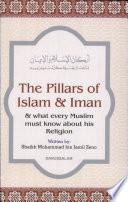
Manajemen Pelayanan Publik
Buku ini secara lengkap membahas 6 (enam) bab terkait manajemen pelayanan publik. Bab pertama, Konsep Dasar Manajemen Pelayanan Publik meliputi konsep dan teori manajemen institusi publik; lingkup, corak, dimensi dan kualitas pelayanan publik; serta pelayanan sektor publik dan privat. Bab kedua, Kajian Normatif Implementasi Kebijakan Pelayanan Publik di Indonesia meliputi maksud, tujuan, asas, dan ruang lingkup; pembina, organisasi penyelenggara, dan penataan; hak, kewajiban, dan larangan penyelenggara; penyelenggaraan; dan peran serta masyarakat, penyelesaian pengaduan, serta ketentuan sanksi dalam pelayanan publik. Bab ketiga, Isu dan Inovasi Manajemen Pelayanan Publik meliputi isu dan potret buram; tantangan manajemen; arti penting inovasi; beberapa pengalaman praktik baik inovasi; dan roadmap pedoman inovasi pelayanan publik. Bab keempat, Kunci Sukses Manajemen Pelayanan Publik meliputi pengelolaan SDM; pengawasan; etika dan profesionalisme; serta teknologi dan informasi pelayanan publik. Bab kelima, Pelayanan Administrasi Kependudukan meliputi arti penting pelayanan, kewenangan penyelenggara, instansi pelaksana dan sistem informasi administrasi kependudukan; hak dan kewajiban serta pelayanan pendaftaran penduduk; pencatatan sipil, data dan dokumen. Bab keenam, Pelayanan Prima dan Standar Pelayanan Minimal Daerah meliputi prinsip pelayanan prima serta penetapan dan jenis SPM daerah; SPM daerah bidang pendidikan, kesehatan, pekerjaan umum dan perumahan rakyat, ketenteraman, ketertiban umum, dan perlindungan masyarakat, sosial; serta pelaporan, pembinaan dan pengawasan SPM daerah.
- ISBN 13 : 6233281539
- ISBN 10 : 9786233281539
- Judul : Manajemen Pelayanan Publik
- Pengarang : Muhamad Mu’iz Raharjo,
- Kategori : Political Science
- Penerbit : Bumi Aksara
- Bahasa : id
- Tahun : 2022
- Halaman : 278
- Google Book : https://play.google.com/store/books/details?id=G8l8EAAAQBAJ&source=gbs_api
-
Ketersediaan :
swasta, organisasi pemerintah bekerja dengan tidak dipengaruhi langsung oleh dimensi pola hubungan the costumer and the ... Tujuannya adalah bahwa manajer dan pegawai organisasi publik berbagi beberapa dilema mereka dengan masyarakat, ...






